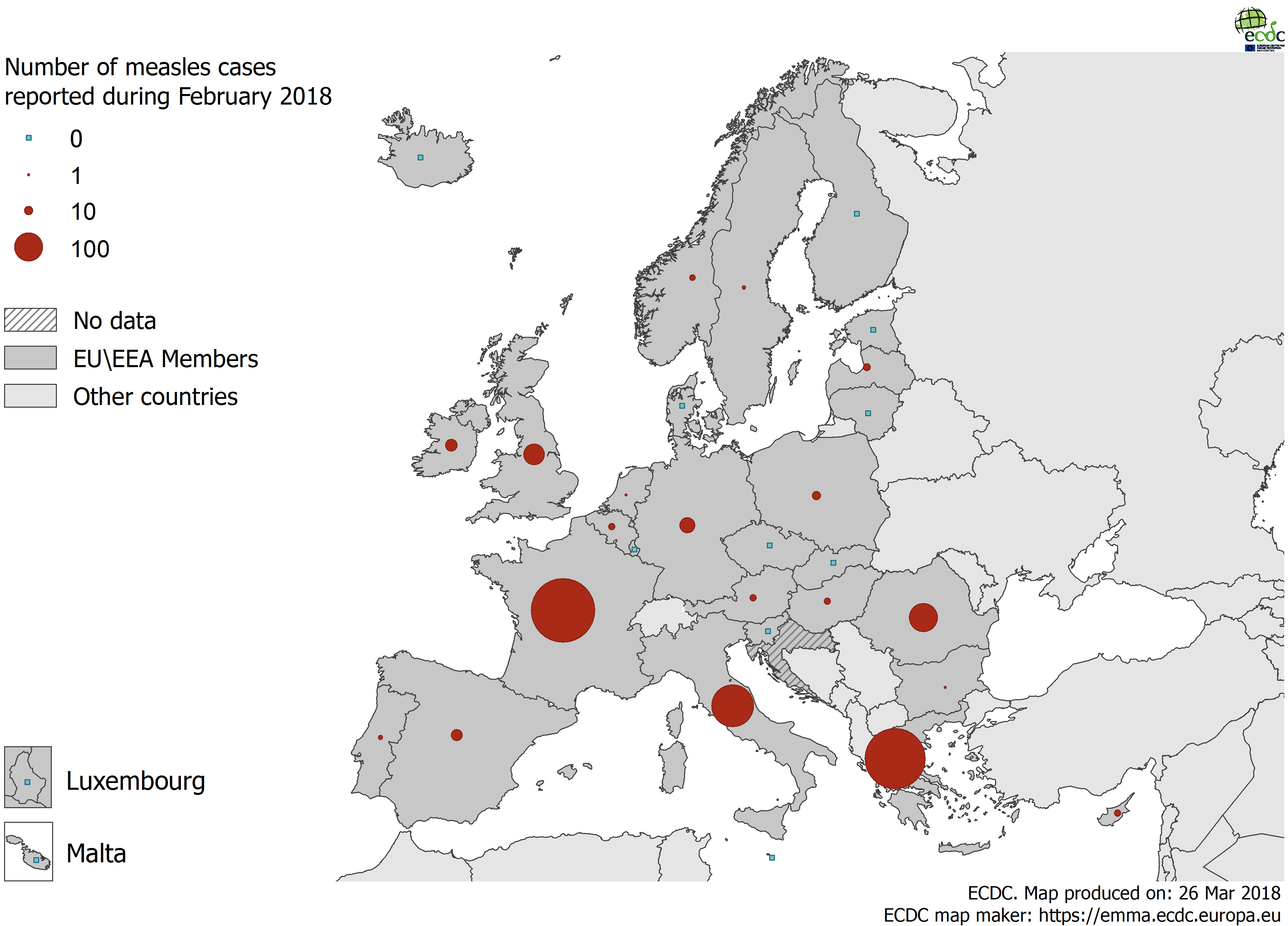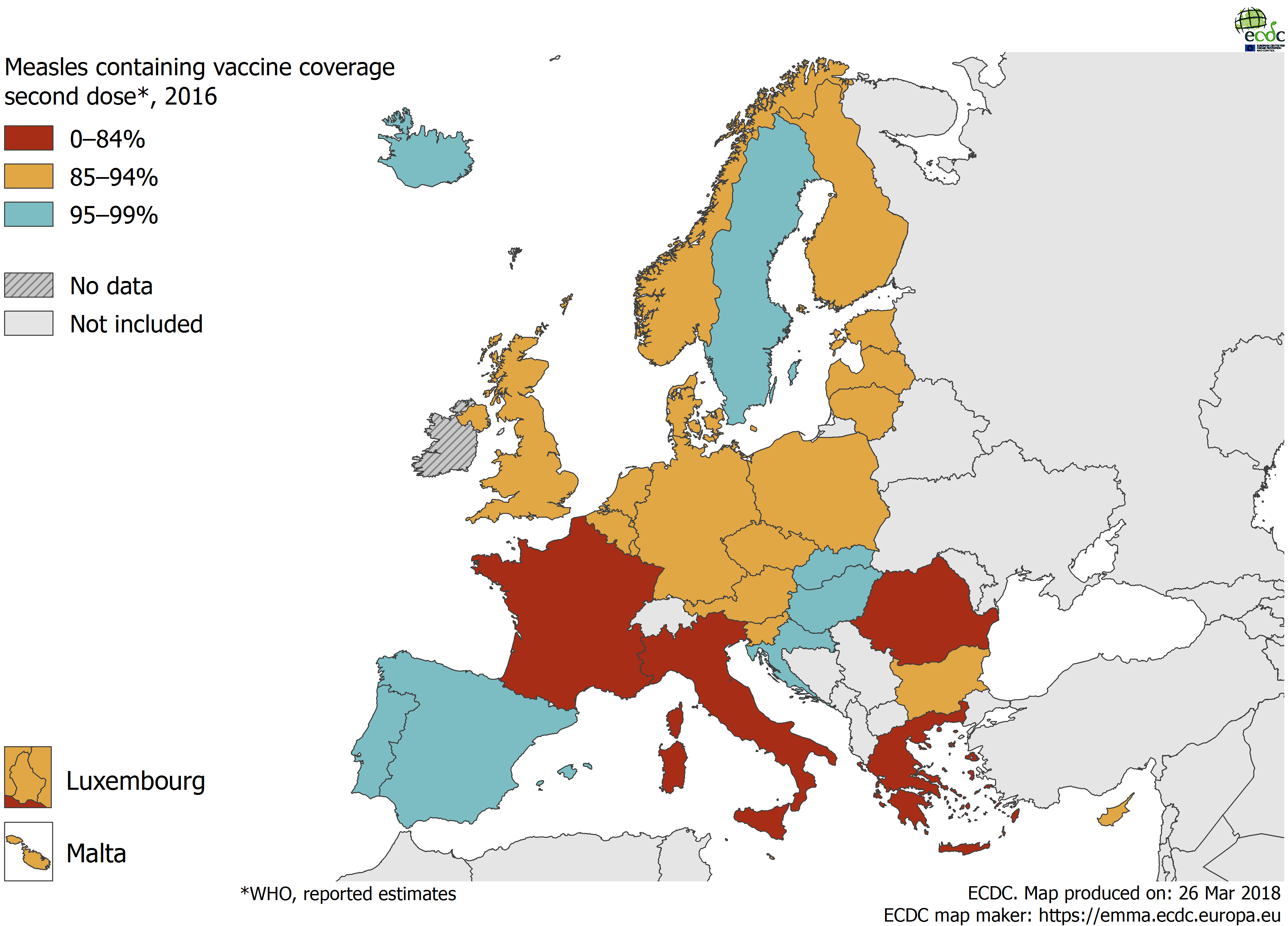‘It started with three Roma children traveling from Romania to Northern Greece in May 2017,’ recalls Dr Vana Papaevangelou. ‘By autumn last year, we had a major outbreak, mainly involving children in the Roma community [where vaccination rates are low].’
Now Greece is experiencing the second largest measles outbreak in Europe. This year, it has recorded 1,463 cases – not far behind Romania’s 1,709 confirmed infections. The southern regions of the country have been hit particularly hard, according to reports.

Dr Papaevangelou, Professor of Paediatric Infectious Diseases at the National and Kapodistrian University of Athens, and a practising paediatrician, said Greece has taken several steps to stop the outbreak.
‘In response, first immunisation of Roma children was initiated and also the national immunisation programme was adapted,’ she said.
‘Vaccination campaigns were organised at Roma camps for children aged nine months to 18 years – more than 5,000 doses were administered by the end of December 2017.’
Two doses of the MMR vaccine – which protects against measles, mumps and rubella – are recommended for children across Europe. In Greece, the first dose of MMR in the national programme is now given at 12 months instead of 12-15 months, and the second dose is given to all children three months after the first one. Previously, the second dose was offered at four years of age.
Do you know the vaccine schedule in your country? Check the ECDC website

‘The good news is that we have had few cases among non-Roma children,’ says Dr Papaevangelou. ‘Most of these were in unvaccinated Greek or immigrant children exposed to measles in hospitals.’
However, there have been a number of cases in young adults outside the Roma community. Almost 70% of cases among the Greek, non-Roma, population were in people aged over 25 years. ‘These were young adults born in the 1980s – including some healthcare workers – that missed their second dose of MMR.’
In the Athens hospital where Dr Papaevangelou works, measles is no longer an unfamiliar sight as the disease spreads across the country. ‘Until recently, most cases were recorded in the southwest area of the country but we have seen many cases in our hospital – both in outpatient clinics and among inpatients,’ she says.
Compared to other EU countries, Greece (like Italy) has many newly-arrived people in migration camps on its southern coast. As the vaccination status of people crossing the Mediterranean may be unknown or unverifiable, Greece has been proactively vaccinating new arrivals since March 2016.
‘More than 37,000 doses have been distributed in migration camps over the past two years,’ Dr Papaevangelou said. ‘This is actually why we have not seen many cases among recent migrants.’
Health authorities hope the increased vaccination activity will be reflected in improved measles outbreak data in the coming months.
Find out more about immunisation in Roma communities, including the role of health mediators
More on Greece: Adult vaccination in an age of austerity




